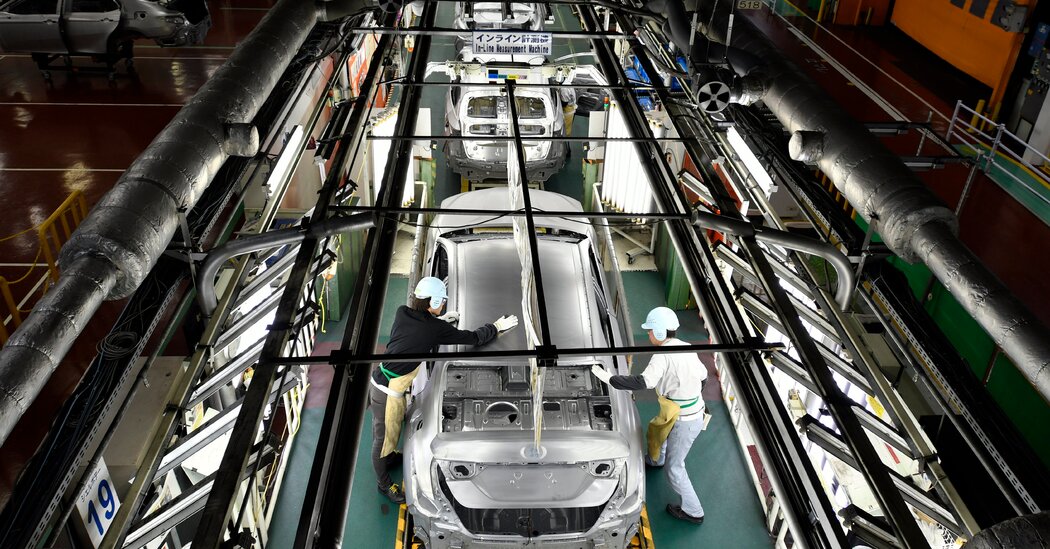TOKYO – Toyota, the world’s largest automaker, said on Tuesday it would restart production in Japan after a cyber attack on a major supplier forced the company to shut down its domestic production.
The shutdown followed a computer systems problem at Kojima Industries, an auto parts maker, that disrupted the company’s ordering systems. The problem first appeared on Saturday night, and the company decided to shut down its computer network to prevent the problem from spreading to customers, a company spokesperson said.
Government officials confirmed on Tuesday that Kojima Industries has been hit by a cyberattack. The company’s website was down on Tuesday afternoon.
In a regular press conference on Tuesday, Cabinet Secretary Hirokazu Matsuno said the government was investigating the source of the attack and warned companies to strengthen their cybersecurity in the face of the unfolding conflict in Ukraine.
“The risk of cyber-attacks is increasing,” he said, adding that “there is a possibility that the damage from the attacks could have a broad impact, not only on companies’ own supply chains, but also on their customers.”
Cyber attacks have become increasingly common in Japan in recent years. Japanese companies have been slow to update their networks to account for the increasing use of ransomware by criminals, as well as intrusions by state actors. Manufacturers were the most common targets for the attacks, which can essentially take computer systems and valuable data hostage.
Like many automakers, Toyota had to cut production significantly after the pandemic devastated global supply chains and led to shortages of semiconductors and other components.
Last year, after the first waves of the virus passed and global demand for cars soared, Toyota announced optimistic plans to produce 9.3 million units worldwide by March 31, the end of the fiscal year.
But skyrocketing demand for semiconductors and recurring waves of infection forced the company to reduce those plans first to nine million and then, in February, to eight and a half million.
Even before the problems at Kojima Industries, Toyota had planned temporary shutdowns at several factories in Japan in March due to parts shortages.
The shutdown announced on Monday affected Toyota’s 14 domestic plants and affected production of 13,000 vehicles, a Toyota spokeswoman said. In a statement, the company said it would resume production on Wednesday.
Despite the setbacks, Toyota has managed to use the lessons learned during a 2011 earthquake and tsunami that devastated northeastern Japan to adapt better than its competitors to the disruptions of the pandemic, and stood up for two years. rank at the top of the global auto sales charts.
Hino, a Toyota subsidiary that manufactures heavy trucks and buses, said in a statement Monday it would also suspend production at two plants due to problems with an unspecified supplier. Another subsidiary, Daihatsu, has also stopped some production, according to local media.

